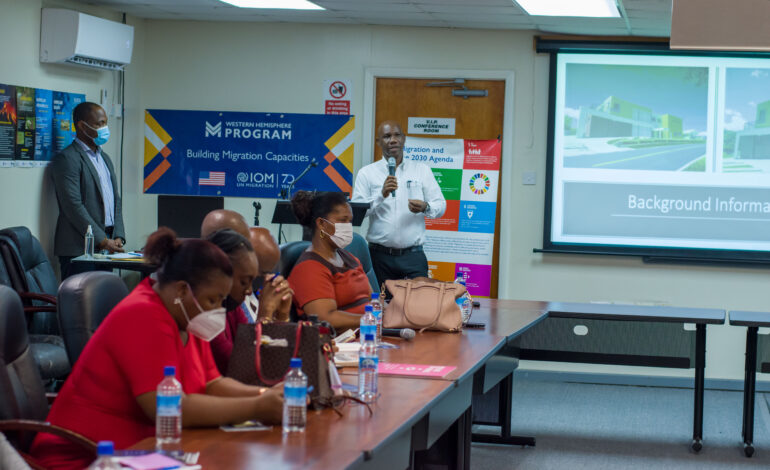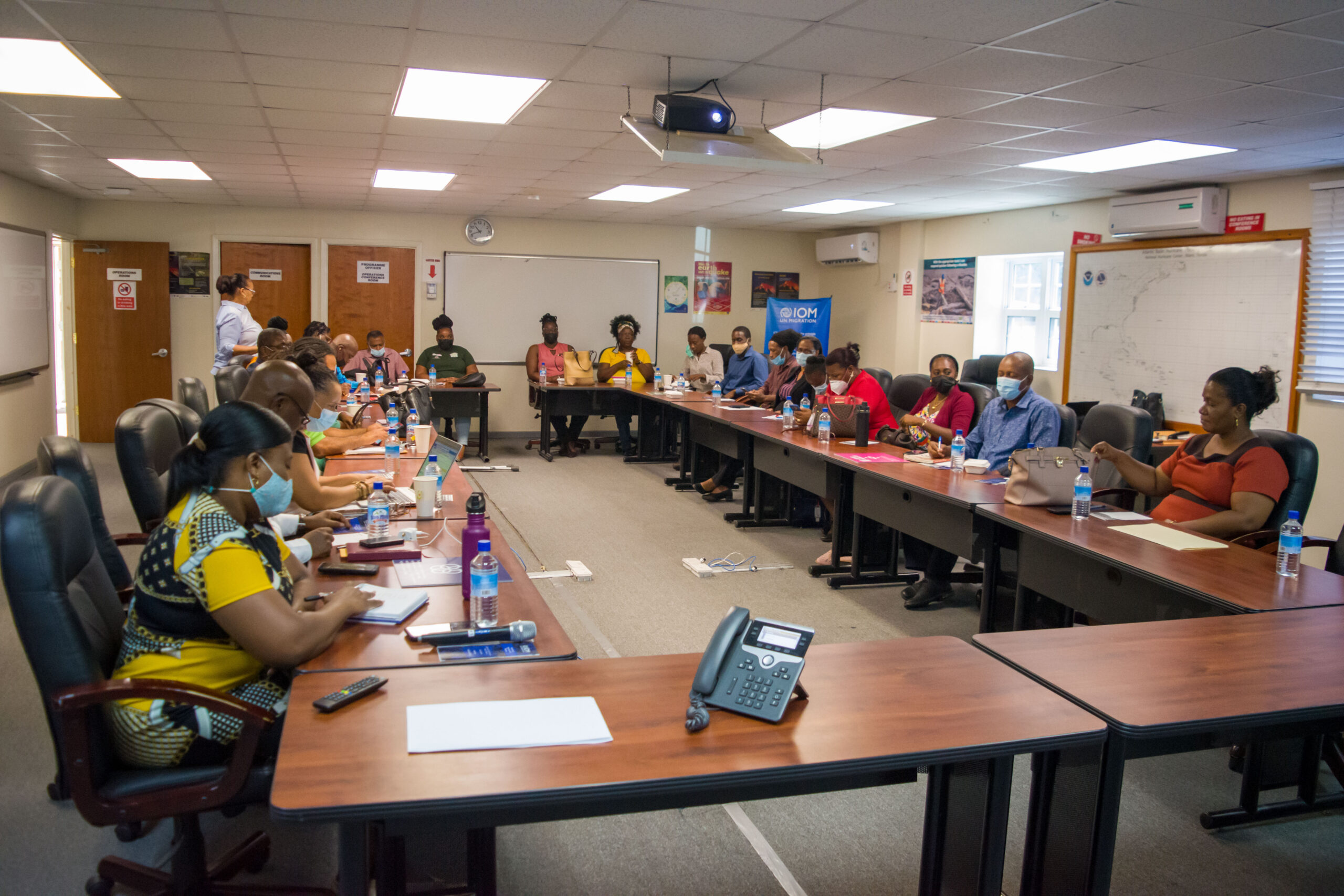
On July 13, 2022, Dominica’s Office of Disaster Management (ODM) and the National Emergency Planning Organization (NEPO), in partnership with the International Organization for Migration (IOM), hosted an After-Action Review of the hurricane evacuation simulation exercise (#SIMEX2022) conducted on 16 and 17 June 2022. The purpose of the simulation was to test the standard procedures for emergency shelter operations and evacuation of vulnerable people to Layou Multi-Purpose Regional Emergency Shelter.
ODM Project Officer, Mandela Christian explained, “In-keeping with the resilience targets of the National Resilience Development Strategy, 2030 and the Climate Resilience and Recovery Plan, the Government of the Commonwealth of Dominica has sought to build resilience through the construction of purpose build regional emergency shelters. These facilities are outfitted with the necessary amenities to facilitate effective and efficient emergency shelter operations. However, they have never been used in an emergency setting, so to avoid any surprises during an emergency event we conducted this exercise.”
During the simulation, various scenarios were used to test the response and operating procedures of shelter management teams. The scenarios were based on several cross-cutting themes including gender-based violence, mental health as well as disability, and migrant inclusion. A team of seven evaluators was responsible for assessing the team’s responses, in the context of a hurricane scenario, and evacuation to the Layou shelter during a pandemic. Feedback from all participants was included in the after-action-review conducted immediately after the activity and a report is being complied to highlight the strengths, weaknesses, opportunities, and threats presented during the SIMEX.
Preliminary findings reveal that adequate standards are in place for shelter management to guide teams with facilitating mass evacuations in Dominica. However, opportunities exist to improve the capacity of teams by providing additional resources (financial and human), integrating a continuous-learning approach to capacity building initiatives, and addressing concerns regarding policy coherence, among other things.
According to IOM Dominica’s Head of Office, Natasha Greaves, “Some of the gaps can be addressed immediately, some in the long term. Ideally, the recommendations that do not require major financial resources but simply require a change of a system or a policy, is what we want to look at immediately. Our hope is that after we submit this report, we will see an improvement in efficiency with which we operate our shelters.”
The end goal is to ensure that the report findings will be useful for the rest of the Caribbean as emergency preparedness is concerned. “Different subcommittees of the emergency management
organization in any country, and those who are involved at the shelter management level or at the health level, should be aware of the protocols that are in place and ensure that those protocols are followed. It is also important that even as a region we share and learn from each other’s experiences, and that our partners, whether locally, regionally, or internationally, that are involved to help develop and integrate these protocols in our emergency functions and activities,” Dr Idelia Ferdinand, said. Ferdinand is the Ministry of Education Liaison to the National Emergency Management Organization (NEMO) in St. Vincent and the Grenadines. She supported the planning and implementation of the evacuation simulation through resources made available from the Global Camp Coordination and Camp Management Cluster (CCCM).
For more information on the project, IOM or its work contact IOM Dominica Communications Officer at (767) 275-3225 or via email atmalleyne@iom.int/ iomdominica@iom.int







